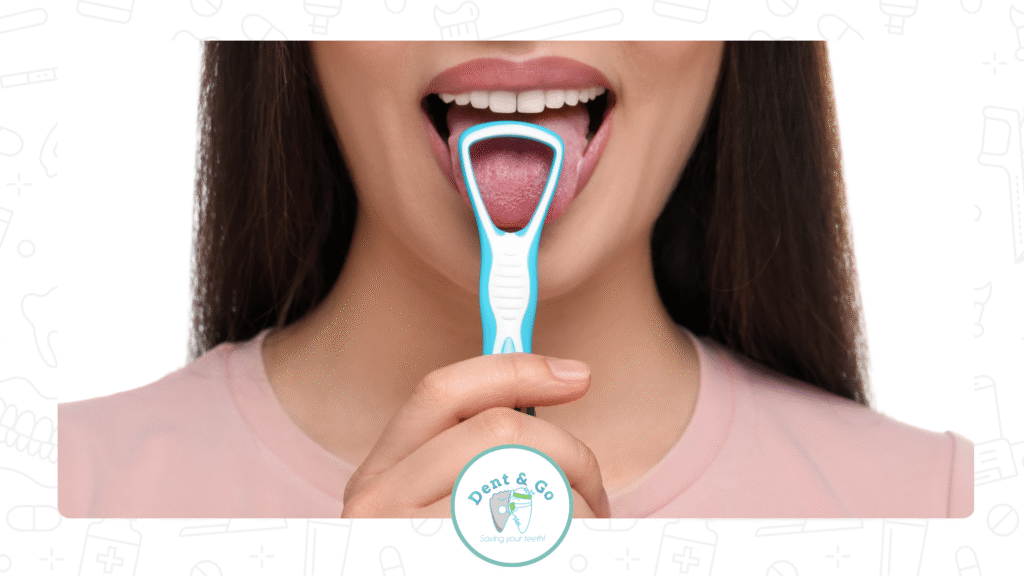Let’s be honest, how often do you brush your tongue? Most of us focus on brushing our teeth, flossing, and using mouthwash, but forget the large muscle sitting right in the middle of our mouths: the tongue. And yet, your tongue plays a massive role in oral hygiene, fresh breath, and even overall health.
Here’s why brushing your tongue should be a non-negotiable part of your daily routine and what the science says about it.
1. Your Tongue Is a Bacteria Magnet
Your tongue is not just for tasting food or forming words. It’s a soft, moist surface that’s ideal for bacteria to stick to, especially towards the back of the tongue, where brushing rarely reaches. If not cleaned regularly, this build-up of bacteria and food debris can lead to bad breath, plaque build-up, and even increase your risk for dental issues.
A 2006 study published in the Journal of Clinical Periodontology (via PubMed) confirmed that mechanical tongue cleaning significantly reduces volatile sulphur compounds (VSCs) the key culprits behind bad breath. In this study, researchers found that using a tongue scraper or brush helped reduce oral malodour and tongue coating more effectively than brushing alone.
“Mechanical tongue cleaning has a significant effect in reducing tongue coating and the levels of VSCs, contributing to better breath and oral cleanliness.” PubMed ID: 16167604
2. A Cleaner Tongue, a Healthier Mouth
Keeping your tongue clean may also lower your overall bacterial load and protect your gums and teeth in the long run. While brushing your teeth removes plaque from tooth surfaces, your tongue often holds onto bacteria that can re-deposit onto clean teeth—undermining your brushing efforts.
A review published in Applied Sciences (MDPI, 2023) looked at tongue hygiene and its effect on caries and oral bacteria. It concluded that both tongue brushing and scraping reduced harmful bacteria associated with tooth decay and gum disease. More impressively, participants who regularly cleaned their tongues had fewer Streptococcus mutans (the bacteria most responsible for cavities) in their saliva.
“Tongue cleaning, when done regularly, significantly contributes to oral health by reducing cariogenic and periodontal bacteria in the mouth.” Applied Sciences, MDPI (2023)
3. Brushing Your Tongue May Help You Taste Better
Some people who begin tongue brushing report that food tastes stronger or more enjoyable. That’s not surprising. A thick white coating on your tongue can dull your taste buds. Removing it clears the surface, allowing your taste receptors to work more efficiently. While more clinical studies are still being developed in this area, anecdotal feedback and expert recommendations support this benefit.
4. How to Brush Your Tongue Properly
Brushing your tongue doesn’t require fancy tools just the right technique:
– Use your regular toothbrush or a tongue scraper.
– Gently brush from the back of your tongue to the front.
– Rinse your mouth (and the scraper) thoroughly afterwards.
– Repeat once or twice a day, ideally after brushing your teeth.
Avoid brushing too hard your tongue is soft and can get irritated easily. If you have a strong gag reflex, try a tongue scraper, which can be quicker and less triggering.
It’s a Small Step With Big Benefits
Cleaning your tongue might take just 30 seconds, but it can:
- Improve your breath
- Reduce harmful bacteria
- Support gum and tooth health
- Possibly enhance your sense of taste
If you’ve never tried brushing your tongue consistently, it’s never too late to start. It’s a simple addition to your oral hygiene routine that could make a big difference.
Ready to Start?
If you’re new to tongue cleaning and not sure where to begin, I recommend trying the Dent & Go Tongue Cleaner. It’s designed to be gentle yet effective, especially for those who are just building the habit. Sleek, easy to use, and perfect for everyday care, it’s a small tool that makes a big difference.

